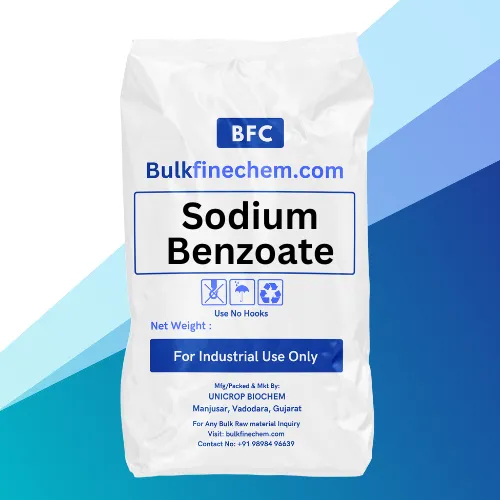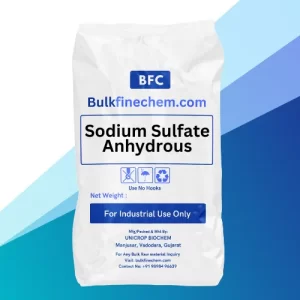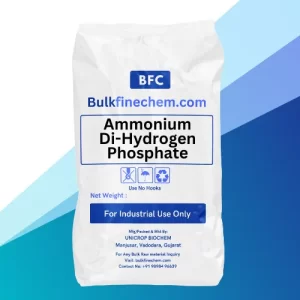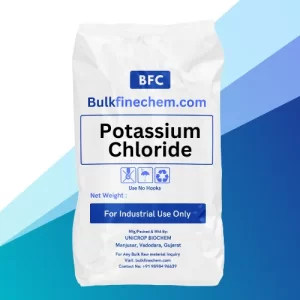Sodium Benzoate
Sodium benzoate, a water-soluble and tasteless salt of benzoic acid, serves as a vital food preservative, primarily in acidic foods and beverages. Its mechanism of action involves inhibiting the growth of bacteria, yeast, and molds, enhancing food safety and extending shelf life. Sodium benzoate is well-known for preserving the flavor and quality of products like salad dressings, carbonated drinks, jams, and pickles. With FDA approval as the first food preservative, it ensures food remains safe and appetizing. Beyond the culinary world, sodium benzoate is a key preservative in cosmetics and medicines, safeguarding their integrity and efficacy.
Application of Sodium Benzoate
Sodium benzoate can act as a food preservative. It is most widely used in acidic foods such as salad dressings (for example acetic acid in vinegar), carbonated drinks (carbonic acid), jams and fruit juices (citric acid), pickles (acetic acid), condiments, and frozen yogurt toppings. It is also used as a preservative in medicines and cosmetics.
Mechanism of Action
- It is most effective in acidic environments, where it can dissociate into benzoic acid (its active form) and sodium ions.
- In this acidic milieu, benzoic acid disrupts microbial metabolism.
- The reduced pH inhibits the activity of enzymes that microorganisms require for their survival.
Benefits of Sodium Benzoate
- It helps preserve the flavor, texture, and overall quality of various foods and beverages over extended periods, ensuring that consumers enjoy products as intended.
- It finds use in a wide range of acidic foods, including salad dressings, carbonated drinks, jams, pickles, condiments, and frozen yogurt toppings.
- By preventing the proliferation of harmful microorganisms, It enhances food safety and reduces the risk of foodborne illnesses.





